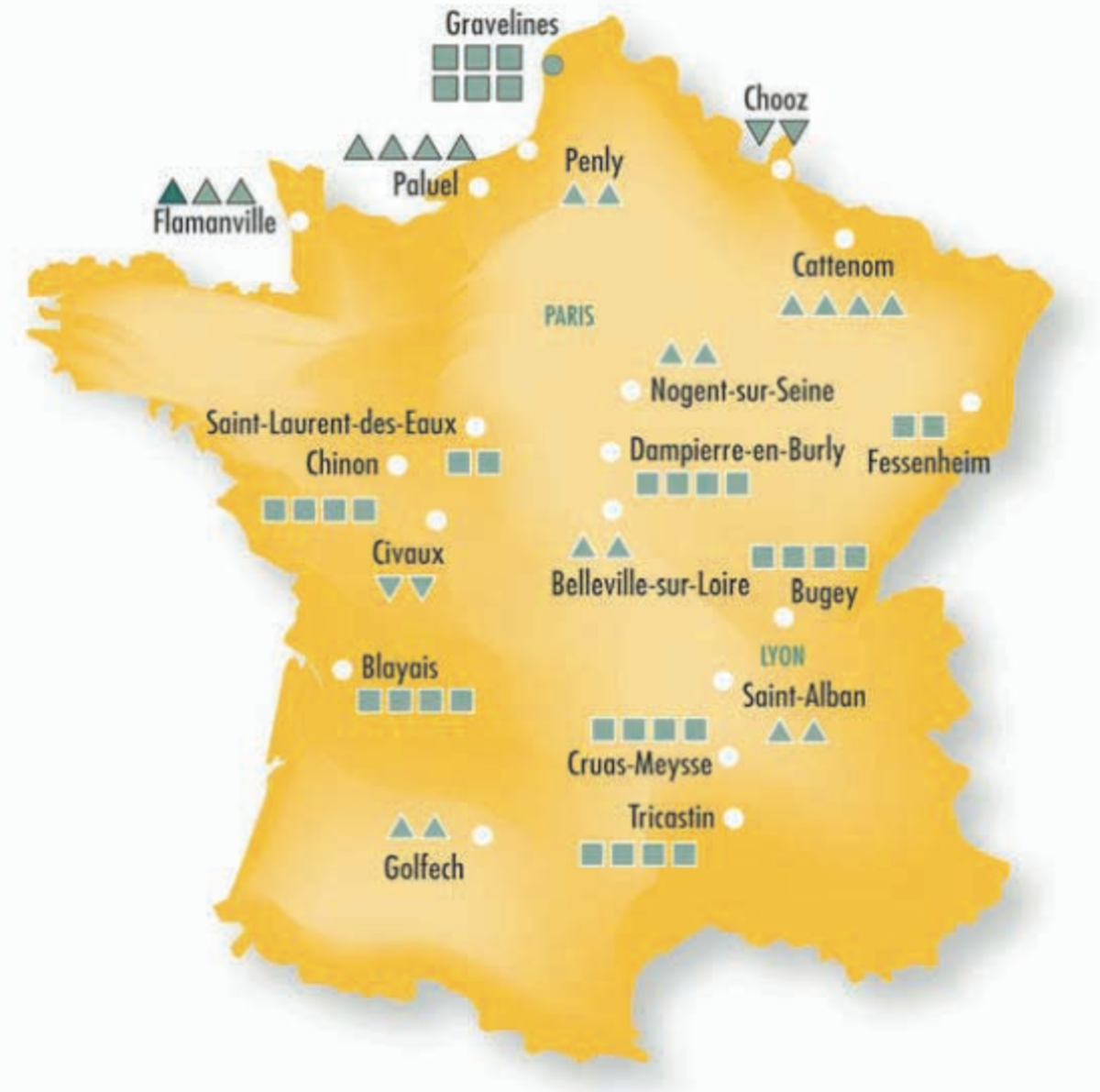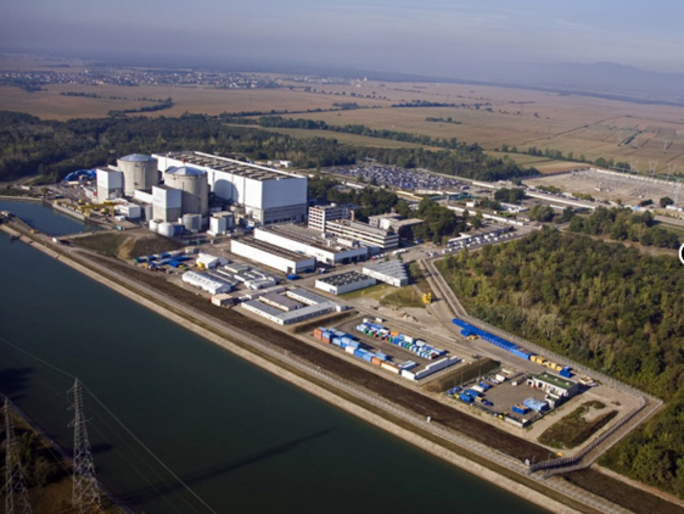The French nuclear industry has been ordered to implement urgent safety improvements costing several billion euros after a nationwide stress-test of the country's major nuclear sites found they were vulnerable to major natural disasters such as that which struck the Japanese plant at Fukushima last March.
The French Nuclear Safety Authority, the Autorité de Sûreté Nucléaire (ASN), the industry's supreme regulator, announced a series of demands this week following its appraisal of the stress-test report, compiled by experts from its technical arm, the Institut de radioprotection et de sûreté nucléaire (IRSN) and which was delivered last November. The study was part of a European Union-wide review of the safety of nuclear installations prompted by the disaster at Fukushima, hit by an earthquake and a subsequent tsunami.
"We are not asking for these investments, we are imposing them," said André-Paul Lacoste, president of the ASN, after the watchdog delivered its conclusions to Prime Minister François Fillon and the principle French nuclear operators, EDF, Areva and the CEA, on Tuesday. "We judge that the plants can only continue to function with these investments [made] in the time span we set out. If not, we will halt them."

The ASN has not called for any immediate closures of any of the plants, matching the conclusions of the IRSN stress test report in November, which found that they were sufficiently safe to be allowed to continue operating in their current state over the short term. However, it has demanded that they improve "their robustness in face of extreme conditions", referring to natural disasters such as earthquakes or flooding, and also the potential disasters that can be caused by an accumulation of human and technical accidents.
France is the world's most nuclear energy-dependent country, with about 75% of its electricity supplied by nuclear production.
The ASN calls for the creation of a "hard core" of material and organizational measures as recommended in the IRSN report. This involves the identification, at each plant, of which functions must remain in operation under any condition, including extreme crises, and the subsequent reinforcement of the equipment and procedures necessary to protect them.
These measures include "bunkerising" a crisis command centre in which staff can continue to work in the case of a disaster. The ASN estimates the cost of this to be 100 million euros per plant and involves 20 sites. It also demands that each of the current 58 reactors operating across the country, as well as for the EPR plant under construction at Flammanville, be equipped with an "ultimate" emergency standby diesel-powered motor generators to ensure an electric current source in the case of the regular grid closing down. The overall investment needed for this is expected to be considerable, given that each diesel motor, according to the ASN, could cost up to 50 million euros.
The ASN also requires each plant to create emergency water reservoirs and to install "hardened" batteries that are more resistant to potential crisis demands than those at present. Taking heed of the lessons of the Fukushima disaster, it has demanded that plants introduce measures to prevent nuclear fuel from exposure above water, the cost of which has not been calculated.
It has furthermore ruled that the industry must create a nuclear rapid intervention force, composed of several hundred people, capable of relieving staff at an accident-struck site within less than 24 hours.
The ASN has demanded that feasibility studies be carried out at every plant, including the nuclear fuel reprocessing site at La Hague, in Normandy, for setting up a system of protecting subterranean water pockets in case of serious accidents.
Plant closures envisaged
The ASN has judged that the industry's current advised procedures in cases of accidents are insufficient to meet major natural or industrial disasters, and demands these be corrected.
André-Claude Lacoste estimates the total cost of the measures demanded by the ASN will "clearly" reach a billion euros. However, utilities giant EDF, which operates all of France's 19 nuclear energy plants, totaling 58 nuclear reactors, has calculated it faces a bill totalling 10 billion euros. This comes on top of the 40 billion euros of investments already earmarked for modifications to lengthen the operating life of plants to 60 years. "If the operator judges it as too expensive, it's for them to see whether the operation of the sites is worth it," commented Lacoste.
All of which raises the possibility that some plants will be closed for reasons of non-profitability. One of the sites most obviously under threat here is that of Fessenheim, in eastern France, which is the oldest of any in operation, having entered into service in 1978. Fessenheim is the regular target of safety criticisms by French and German ecologist movements who demand that it be closed, and Socialist Party presidential election candidate François Hollande has promised shut-down the plant if he is elected in May.

In December, French ecology minister Nathalie Kosciusko-Morizet commented that the closure of Fessenheim "was not to be excluded". Interviewed Tuesday shortly before the ASN delivered its findings, she said: "If the ASN recommends the closure, we'll close it, of course." However, the ASN made no such recommendation. Indeed, in June 2011, it authorized the plant's No1 reactor to continue in service for another ten years, on condition that the reactor's apron, a concrete base on which it sits, be reinforced and that a supplementary water source be introduced.
The measures demanded by the ASN demand complex and costly technical solutions, and a clarification of the standards employed, such as the seismic stress to which the ultimate emergency backup diesel-powered electrical generators must resist. Given the massive investments required, the ASN envisages a step-by-step application of its demands. Regarding the introduction of especially-resistant diesel motors, which are not expected to be installed across the country's 19 plants before 2018, the ASN has accepted that standard diesel generators can be initially used. These must be set in place in 2013.
France's nuclear plant operators now have six months to prepare the "hard core" measures required of each site, and will meet with energy minister Eric Besson next week to set out a calendar for the introduction of the ASN demands. French Prime Minister François Fillon issued a statement Tuesday promising that the government would ensure that all of the ASN's demands would be met within "an imposed calendar".
The French national audit office, la Cour des comptes (Court of Accounts), is due to deliver a report on the costs of the country's nuclear industry, now significantly increased in the wake of the ASN's findings, by the end of January.
Meanwhile, the European Commission will present the results of all the stress tests carried out on member states' nuclear installations in June.
-------------------------
English version: Graham Tearse


